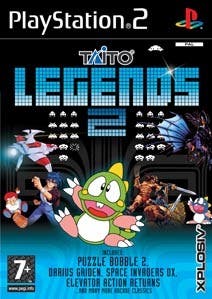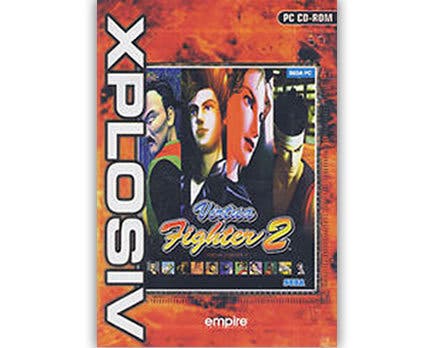The Retro Industry
Making money from old rope.
The modern retro gamer is really quite spoiled. We've got access to pretty much every old game ever released and, while we used to pay £10 for an average Spectrum game, we can now go online and download that same game for free in less time than it took to open the cassette box.
But that's not to say there isn't still an industry based around those classic titles. Aging IP that's gone unwanted and valueless for well over a decade is finding its fiscal significance once again rising. We spoke to Sean Walsh, Product Manager at XPLOSIV, to find out what challenges and riches a developer can find in the retro bargain bin.
"Budget range games are nothing new. There's always been a market for lower priced titles which, in all honesty, represents a significant part of the computer and videogame market. XPLOSIV is a label within Empire Interactive that focuses on products directed at a lower price point, primarily on Playstation 2, PSP and PC. Although we all wait on pins and needles for the big new releases, this corner of the market is wonderfully creative and prolific; no publisher can ignore it and survive." begins Sean, drawing the kind of distinct, yet all too difficult to find, parallel between the modern games industry and that of yesteryear we so love to celebrate.
And what he says is true. Although the years of worry lines and cracks of responsibility across our maturing faces might have changed, our game buying habits have remained decidedly ageless. The infamous "budget range" is an aspect of gaming that's all too easy to overlook with our rose tinted microscopes, and yet the shelves in our bedrooms sank under the weight of affordable gaming; not just big name titles.

Games were simpler and quicker, and we needed a regular, affordable fix. Those single cassette boxes were a potential gold mine of lesser known and "past-their-sell-by" games, exploited by the spendthrift joystick junky 20-years hence every bit as much as today's "platinum" game collector.
But the "budget range" has mingled with the retro vogue so thoroughly it's becoming hard to see the divide. Certainly one trend in our buying habits is new; cheap never used to be fashionable. These days, there's a very real appeal to something that's inexpensive, kitsch or camp. We veer away from the designer goods and look toward the small guy to provide for our trend-setting needs. At one time we bought cheap games because they were cheap - our expectations lowered in accordance with the price tag. But now we're scouring the shelves for labels that are deliberately targeting this new mode, as Sean explains:
"The games industry is growing up and over the last three to four years, gamers are now able to look back at the history of games with fondness and see how they've changed and grown. Just like music and movies, they remind us of our youth. This is the kind of appeal that can't be manufactured, hyped or diverged, but a good developer or publisher can supply to it; so long as they make a special effort to get involved and really understand it.

"Our Taito Legends series have been hugely popular because we put a lot of thought into exactly what the compilations would offer to the "retro" players. We knew they'd be well received because we'd chosen so many great titles that complimented each other - making every effort to provide not just a few good old games, but a complete nostalgic experience. It's not just the individual games - it's the collection as a whole that's designed to provoke an evocative reaction."
Sean raises a good point. Time hasn't been especially kind to many of those old games we remember so fondly. Once the dust has been blown away, a few minutes of reminiscence can often purge the distorted memories of exciting gameplay. But strength can be found in unison, and a well devised compilation - put together by someone of a likeminded disposition toward classic gaming - can stir contiguous reminiscences of the time spent playing those games, and not necessarily the game itself. While Altered Beast, for instance, may be a stilted, uneventful game these days, remembering what it was like when the werewolf filled the screen of a coin-op cabinet and roared a guttural, baseline howl into a deafening arcade air, the suffering game recaptures much of its old appeal.
Of course, all our memories are different, and triggering the correct associations is not a question of science, but art. This is an industry that's not entirely developer led; we've unknowingly helped shape it ourselves through years of youthful recollection. But do the developers accept they're playing more to our tune than their own; taking a dangerously unreliable lead from our desires to relive a misspent youth, or are they simply deciphering marketing patterns that we, as individuals, aren't able to see?
